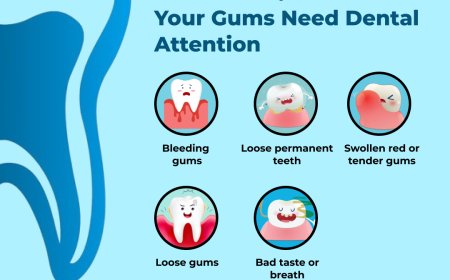Top 10 Diets Supported by Nutritionists
Top 10 Diets Supported by Nutritionists You Can Trust In an era saturated with fad diets, quick-fix weight loss promises, and viral food trends, finding a nutrition plan grounded in science and endorsed by experts has never been more important. With countless diets claiming to be the “best” or “most effective,” consumers are left confused, overwhelmed, and often misled. The truth is, not all diets
Top 10 Diets Supported by Nutritionists You Can Trust
In an era saturated with fad diets, quick-fix weight loss promises, and viral food trends, finding a nutrition plan grounded in science and endorsed by experts has never been more important. With countless diets claiming to be the “best” or “most effective,” consumers are left confused, overwhelmed, and often misled. The truth is, not all diets are created equal. Some are backed by decades of research, clinical trials, and the collective consensus of registered dietitians and nutrition scientists. Others are built on anecdotal evidence, extreme restrictions, or unsustainable practices that can do more harm than good.
This article presents the Top 10 Diets Supported by Nutritionists You Can Trust — carefully selected based on their evidence-based foundations, long-term sustainability, nutrient adequacy, and endorsement by leading health organizations and nutrition professionals. These diets are not designed for rapid weight loss alone; they prioritize overall health, disease prevention, metabolic balance, and lifelong well-being. Whether your goal is weight management, improved heart health, better blood sugar control, or simply eating more mindfully, these ten plans offer realistic, science-backed pathways forward.
Before diving into the list, it’s essential to understand why trust matters — and what separates a nutritionist-approved diet from a fleeting trend.
Why Trust Matters
The diet industry generates over $700 billion annually, fueled by marketing, celebrity endorsements, and social media influencers. Many of these programs promise dramatic results in minimal time — lose 20 pounds in 2 weeks, burn fat while sleeping, or eat unlimited carbs and still get lean. These claims are often seductive but rarely sustainable. Worse, they can lead to nutritional deficiencies, disordered eating patterns, metabolic slowdown, and psychological distress.
Trust in a diet comes from transparency, consistency with scientific evidence, and endorsement by qualified professionals. Registered dietitians (RDs) and nutrition scientists rely on peer-reviewed research, randomized controlled trials, longitudinal studies, and population-level data to make recommendations. They evaluate diets not just on weight loss outcomes, but on markers like cholesterol levels, blood pressure, insulin sensitivity, gut health, inflammation, and mental well-being.
A trusted diet:
- Is supported by multiple independent studies over time
- Encourages whole, minimally processed foods
- Does not eliminate entire food groups without medical justification
- Is adaptable to cultural, ethical, and personal preferences
- Promotes long-term behavior change over short-term restriction
- Is endorsed by reputable organizations like the American Heart Association, Academy of Nutrition and Dietetics, or Mayo Clinic
Diets that fail these criteria — such as the cabbage soup diet, grapefruit diet, or detox cleanses — may produce temporary results but often lead to rebound weight gain and compromised health. In contrast, the diets featured in this guide have stood the test of time and continue to be recommended by nutrition experts worldwide.
Choosing a diet you can trust means investing in your health for life — not just for the next 30 days.
Top 10 Diets Supported by Nutritionists
1. The Mediterranean Diet
The Mediterranean Diet is consistently ranked as the
1 best overall diet by U.S. News & World Report and endorsed by the American Heart Association, the Mayo Clinic, and the Academy of Nutrition and Dietetics. Rooted in the traditional eating patterns of countries bordering the Mediterranean Sea — including Greece, Italy, and Spain — this diet emphasizes whole, plant-based foods, healthy fats, and moderate animal protein.
Key components include:
- Abundant fruits, vegetables, legumes, nuts, seeds, and whole grains
- Olive oil as the primary source of added fat
- Regular consumption of fish and seafood, especially fatty fish like salmon and sardines
- Moderate intake of poultry, eggs, cheese, and yogurt
- Limited red meat and sweets
- Optional moderate red wine consumption with meals
Research shows the Mediterranean Diet reduces the risk of heart disease, stroke, type 2 diabetes, certain cancers, and cognitive decline. A landmark 2013 study published in the New England Journal of Medicine found that participants following a Mediterranean diet supplemented with extra-virgin olive oil or nuts had a 30% lower risk of major cardiovascular events compared to those on a low-fat diet.
What makes this diet truly sustainable is its flexibility and enjoyment. It’s not about counting calories or eliminating food groups — it’s about shifting your relationship with food toward abundance, flavor, and balance. Nutritionists appreciate its cultural richness, adaptability to vegetarian and vegan lifestyles, and proven long-term adherence rates.
2. DASH Diet (Dietary Approaches to Stop Hypertension)
Developed by the National Heart, Lung, and Blood Institute (NHLBI), the DASH Diet was specifically designed to combat high blood pressure — one of the leading risk factors for heart disease and stroke. It has been ranked as the best heart-healthy diet and best diet for diabetes by U.S. News & World Report, and is recommended by the American Diabetes Association and the American College of Cardiology.
The DASH Diet focuses on reducing sodium intake while increasing consumption of potassium, calcium, magnesium, fiber, and protein — nutrients known to help regulate blood pressure. It encourages:
- Fruits and vegetables (4–5 servings each per day)
- Whole grains (6–8 servings per day)
- Low-fat dairy products (2–3 servings per day)
- Lean meats, poultry, and fish (2 or fewer servings per day)
- Nuts, seeds, and legumes (4–5 servings per week)
- Limited sweets, sugary beverages, and saturated fats
- Sodium intake capped at 2,300 mg per day (with an option for 1,500 mg for greater effect)
Studies have shown that the DASH Diet can lower systolic blood pressure by 8–14 mm Hg within just a few weeks — comparable to the effects of some medications. Beyond blood pressure, it improves insulin sensitivity, reduces LDL (“bad”) cholesterol, and supports healthy weight management.
Nutritionists favor the DASH Diet because it is not restrictive, provides clear portion guidelines, and can be easily customized for various dietary needs, including vegetarian, gluten-free, or low-sodium lifestyles. Its structure makes it ideal for families and long-term maintenance.
3. Flexitarian Diet
The Flexitarian Diet, popularized by dietitian Dawn Jackson Blatner, is a primarily plant-based eating pattern that allows for occasional meat and animal products. It strikes a perfect balance between the health benefits of vegetarianism and the practicality of a flexible approach — making it one of the most sustainable diets recommended by nutritionists.
The diet is built around three levels of flexibility:
- Beginner: 6–7 meatless meals per week
- Advanced: 8–14 meatless meals per week
- Expert: 15+ meatless meals per week
Core principles include:
- Focusing on vegetables, fruits, whole grains, legumes, nuts, and seeds
- Choosing lean proteins like poultry, fish, eggs, and dairy when including animal products
- Minimizing processed foods, added sugars, and refined grains
- Emphasizing mindful eating and portion awareness
Research shows that flexitarians tend to have lower body mass index (BMI), reduced risk of heart disease, type 2 diabetes, and certain cancers compared to omnivores. A 2020 study in the Journal of the American College of Nutrition found that individuals following a flexitarian pattern had significantly better lipid profiles and lower inflammation markers.
Nutritionists love the Flexitarian Diet because it removes the pressure of perfection. It’s ideal for people who enjoy meat but want to reduce their environmental footprint or improve their health. It’s also highly adaptable for cultural cuisines, budget constraints, and family meals — making it one of the most practical and widely applicable diets on this list.
4. Nordic Diet
Often overshadowed by its Mediterranean cousin, the Nordic Diet is gaining recognition among nutritionists for its strong scientific backing and regional sustainability. Based on the traditional eating habits of Denmark, Finland, Iceland, Norway, and Sweden, this diet emphasizes locally sourced, seasonal, and environmentally responsible foods.
Key elements include:
- Abundant fruits and vegetables, especially berries, root vegetables, and cruciferous varieties
- Whole grains such as rye, barley, and oats
- Wild-caught fish and seafood (salmon, herring, mackerel)
- Canola oil as the primary fat source (rich in omega-3s)
- Lean meats like game and poultry, with limited red meat
- Legumes, nuts, seeds, and low-fat dairy
- Minimal processed foods, added sugars, and artificial additives
A 2014 study published in The American Journal of Clinical Nutrition found that participants on the Nordic Diet lost more weight and reduced their waist circumference more than those on a typical Western diet — even without calorie counting. The diet also improved insulin sensitivity and reduced markers of inflammation.
Nutritionists appreciate the Nordic Diet’s emphasis on food quality and sustainability. Unlike many diets that focus solely on macronutrients, the Nordic approach considers the environmental impact of food choices — aligning with modern values around climate-conscious eating. It’s also naturally low in sugar and high in fiber, making it excellent for metabolic health.
5. Ornish Diet
Developed by Dr. Dean Ornish, this diet was originally designed to reverse coronary artery disease without surgery or medication. It is one of the most restrictive plant-based diets on this list — but also one of the most rigorously studied. The Ornish Diet is endorsed by the American Heart Association and has been covered in multiple peer-reviewed studies, including a landmark 1990 publication in The Lancet.
Core guidelines include:
- Very low-fat intake (10% of calories from fat)
- Exclusively plant-based foods: vegetables, fruits, whole grains, legumes, soy products, and nonfat dairy
- No animal products except egg whites and nonfat dairy
- Strict avoidance of oils, butter, nuts, seeds, and avocados
- Integration of stress management, exercise, and social support
Dr. Ornish’s research demonstrated that this diet, combined with lifestyle changes, could actually reverse arterial plaque buildup in patients with severe heart disease. Follow-up studies showed sustained improvements in cholesterol, blood pressure, and even telomere length — a marker of cellular aging.
Nutritionists support the Ornish Diet for its powerful cardiovascular benefits, especially for individuals with existing heart conditions. However, they caution that its extreme fat restriction may not be suitable for everyone, particularly those needing higher fat intake for hormonal balance or neurological health. It’s best followed under professional guidance, but its emphasis on whole foods, fiber, and lifestyle integration remains highly valuable.
6. Weight Watchers (WW) Program
Weight Watchers, now known as WW, is one of the most well-researched commercial weight loss programs in the world. It has consistently ranked among the top diets for weight loss and ease of use by U.S. News & World Report. Unlike many diets that focus on rigid rules, WW uses a points-based system (SmartPoints) to encourage mindful eating.
How it works:
- Every food is assigned a SmartPoints value based on calories, sugar, saturated fat, and protein content
- Fruits and most vegetables are zero points, encouraging higher intake
- Members track intake using an app and receive weekly coaching
- Emphasis on behavioral change, portion control, and emotional eating awareness
A 2017 study published in The New England Journal of Medicine found that participants in the WW program lost significantly more weight over 12 months than those receiving standard weight loss advice. A 2021 meta-analysis confirmed that WW is one of the most effective programs for long-term weight maintenance.
Nutritionists appreciate WW for its flexibility, scientific backing, and focus on behavior modification rather than food restriction. It doesn’t ban any foods — which reduces feelings of deprivation — and teaches skills that last beyond the program. It’s particularly effective for people who benefit from structure, accountability, and community support.
7. MIND Diet (Mediterranean-DASH Intervention for Neurodegenerative Delay)
Developed by researchers at Rush University Medical Center, the MIND Diet is a hybrid of the Mediterranean and DASH diets, specifically designed to protect brain health and reduce the risk of Alzheimer’s disease and cognitive decline. It’s now recommended by neurologists and geriatric nutritionists worldwide.
The MIND Diet highlights 10 brain-healthy food groups:
- Green leafy vegetables (6+ servings per week)
- Other vegetables (1+ serving per day)
- Nuts (5+ servings per week)
- Berries (2+ servings per week)
- Beans (3+ servings per week)
- Whole grains (3+ servings per day)
- Fish (1+ serving per week)
- Poultry (2+ servings per week)
- Olive oil as the primary oil
- Wine (1 glass per day, optional)
It also advises limiting five unhealthy food groups:
- Red meats
- Butter and margarine
- Cheese
- Pastries and sweets
- Fried or fast food
A 2015 study in Alzheimer’s & Dementia found that strict adherence to the MIND Diet was associated with a 53% reduction in Alzheimer’s risk. Even moderate adherence reduced risk by 35%. The diet’s benefits extend to improved memory, slower cognitive aging, and reduced oxidative stress in the brain.
Nutritionists value the MIND Diet for its precision in targeting brain health without being overly restrictive. It’s easy to integrate into existing eating patterns and offers a compelling reason for people of all ages to prioritize nutrient-dense, antioxidant-rich foods.
8. TLC Diet (Therapeutic Lifestyle Changes)
Created by the National Institutes of Health (NIH), the TLC Diet is a science-based approach to lowering cholesterol and improving heart health. It’s often recommended for individuals with high LDL cholesterol, metabolic syndrome, or a family history of heart disease.
The TLC Diet has three core pillars:
- Diet: Reduce saturated fat to less than 7% of daily calories; limit dietary cholesterol to less than 200 mg per day; increase soluble fiber (10–25 grams per day); include plant stanols/sterols
- Physical activity: At least 30 minutes of moderate exercise most days
- Weight management: Achieve and maintain a healthy weight
Food recommendations include:
- Whole grains, fruits, vegetables, legumes
- Lean proteins like skinless poultry, fish, and low-fat dairy
- Low-fat or fat-free dairy products
- Limiting red meat, full-fat dairy, fried foods, and processed snacks
Studies show the TLC Diet can reduce LDL cholesterol by 20–30% — a significant improvement that can reduce heart disease risk by up to 40%. Unlike many fad diets, TLC doesn’t promise rapid weight loss; it prioritizes long-term cardiovascular health through consistent, evidence-based changes.
Nutritionists recommend the TLC Diet for its clarity, focus on cholesterol management, and integration with other lifestyle factors. It’s particularly useful for individuals who need to manage specific biomarkers rather than just lose weight.
9. Whole30 (as a Reset Tool)
While Whole30 is often misunderstood as a long-term diet, nutritionists support it as a short-term elimination and reset program — not a permanent eating plan. Created by Melissa Hartwig Urban, Whole30 is a 30-day program that eliminates added sugar, alcohol, grains, legumes, dairy, and processed foods to help identify food sensitivities and reset eating habits.
During the 30 days, participants consume:
- Unprocessed meats, seafood, and eggs
- Vegetables and fruits
- Nuts and seeds (excluding peanuts)
- Healthy fats like olive oil and avocado oil
All processed foods, sweeteners, and “replacements” (like almond milk or gluten-free baked goods) are prohibited.
While there is limited peer-reviewed research on Whole30 specifically, many nutritionists acknowledge its value as a diagnostic tool. Participants often report improved digestion, reduced inflammation, better sleep, and reduced sugar cravings after completing the program. The real benefit lies in the reintroduction phase — where individuals systematically add back eliminated foods to observe how their body responds.
Nutritionists caution against long-term use of Whole30 due to its exclusion of nutrient-dense foods like legumes and whole grains. However, as a 30-day reset to break unhealthy patterns, reconnect with whole foods, and identify triggers for bloating or fatigue, it’s a powerful and widely respected tool in clinical nutrition practice.
10. Plant-Based Diet (Whole-Food, Plant-Based)
Often confused with veganism, a whole-food, plant-based (WFPB) diet focuses on consuming foods in their natural, unprocessed state — excluding all animal products and minimizing oils, refined sugars, and processed flour. It’s one of the most extensively researched dietary patterns for chronic disease prevention.
Key components:
- Vegetables, fruits, legumes, whole grains, nuts, and seeds
- No meat, dairy, eggs, or honey
- No added oils, even olive oil
- No refined carbohydrates or processed foods
Research from Dr. T. Colin Campbell’s China Study and Dr. Caldwell Esselstyn’s work at the Cleveland Clinic shows that a strict WFPB diet can reverse heart disease, lower blood pressure, improve insulin sensitivity, and reduce cancer risk. A 2019 study in the Journal of the American Heart Association found that plant-based diets were associated with a 16% lower risk of cardiovascular disease and a 25% lower risk of death from all causes.
Nutritionists support this diet for its unparalleled ability to reduce inflammation, improve gut microbiome diversity, and provide abundant phytonutrients. However, they emphasize the importance of proper planning to ensure adequate intake of vitamin B12, iron, zinc, omega-3 fatty acids, and protein — often through fortified foods or supplements.
Unlike veganism, which may include processed vegan foods, the WFPB approach is strictly focused on whole, minimally processed plants. This distinction makes it uniquely powerful for health optimization — and increasingly popular among medical professionals.
Comparison Table
| Diet | Primary Focus | Key Foods | Restrictions | Scientific Support | Sustainability | Best For |
|---|---|---|---|---|---|---|
| Mediterranean Diet | Heart health, longevity | Olive oil, fish, vegetables, fruits, whole grains, nuts | Limited red meat, sweets | Extensive — multiple large-scale studies | High — culturally rich, flexible | General health, heart disease prevention |
| DASH Diet | Blood pressure control | Fruits, vegetables, low-fat dairy, whole grains, lean protein | Low sodium, limited sugar and saturated fat | Strong — NIH-backed, clinical trials | High — structured, family-friendly | Hypertension, diabetes, heart health |
| Flexitarian Diet | Plant-forward, flexible | Plants, legumes, nuts, occasional meat/fish | Reduces meat, not eliminates | Strong — linked to lower disease risk | Very high — adaptable to any culture | Weight management, sustainability, beginners |
| Nordic Diet | Regional sustainability, metabolic health | Berries, root veggies, rye, canola oil, seafood | Limited processed foods, sugar | Strong — clinical trials in Europe | High — eco-conscious, seasonal | Metabolic syndrome, environmental values |
| Ornish Diet | Reversing heart disease | Plant-based, very low fat, no oil | No animal fat, no oil, no nuts | Very strong — peer-reviewed, reverses plaque | Moderate — very restrictive | Advanced heart disease, strict compliance |
| WW (Weight Watchers) | Weight loss, behavior change | Any food, points-based tracking | None — encourages mindful choices | Very strong — large RCTs, long-term data | High — app-based, supportive | Weight loss, accountability seekers |
| MIND Diet | Brain health, cognitive protection | Leafy greens, berries, nuts, whole grains, fish | Limited red meat, butter, cheese, fried food | Strong — Rush University research | High — overlaps with Mediterranean/DASH | Aging, memory, Alzheimer’s prevention |
| TLC Diet | Cholesterol reduction | Whole grains, fruits, vegetables, lean protein, soluble fiber | Low saturated fat, low cholesterol | Strong — NIH guidelines | High — practical for medical use | High LDL, metabolic disorders |
| Whole30 | Food sensitivity reset | Whole foods only — no sugar, grains, dairy, legumes | Strict elimination for 30 days | Emerging — anecdotal + clinical observations | Low — short-term only | Resetting habits, identifying triggers |
| Whole-Food, Plant-Based (WFPB) | Chronic disease reversal | Whole plants only — no oil, no processed foods | No animal products, no added fats | Very strong — multiple clinical trials | Moderate — requires planning | Diabetes, heart disease, cancer prevention |
FAQs
Are these diets safe for everyone?
While all ten diets listed are generally safe for healthy adults, individual needs vary. People with medical conditions such as kidney disease, diabetes, or eating disorders should consult a registered dietitian before making major dietary changes. Pregnant or breastfeeding individuals, children, and older adults may require specific nutrient adjustments. No diet should be adopted without considering personal health history.
Can I lose weight on these diets?
Yes — but weight loss is not their primary goal. All of these diets promote healthy weight management through balanced nutrition, portion awareness, and whole foods. Weight loss occurs naturally as a side effect of improved metabolic health, reduced inflammation, and reduced intake of processed foods. Sustainable weight loss is slower and more lasting than that achieved through extreme restriction.
Do I need to count calories on any of these diets?
No — with the exception of WW, which uses a points system (not calories), none of these diets require calorie counting. They focus on food quality, portion balance, and mindful eating. The emphasis is on choosing nutrient-dense foods that naturally regulate appetite and energy intake.
Which diet is best for long-term adherence?
The Mediterranean, DASH, Flexitarian, and WW diets consistently rank highest for long-term adherence. Their flexibility, cultural compatibility, and lack of extreme restrictions make them easier to maintain over years — not just weeks. The most effective diet is the one you can stick to without feeling deprived.
Are plant-based diets nutritionally complete?
Yes — when properly planned. A whole-food, plant-based diet can provide all essential nutrients. However, vitamin B12 (from fortified foods or supplements), vitamin D, omega-3 fatty acids (from algae or flaxseed), iron, and zinc require attention. Many nutritionists recommend a B12 supplement for anyone following a strict plant-based diet.
What if I don’t like fish or nuts?
There are alternatives. The Mediterranean and DASH diets can be adapted to exclude fish by increasing legumes and flaxseed for omega-3s. Nuts can be replaced with seeds like chia, pumpkin, or sunflower. The Flexitarian, Nordic, and MIND diets also offer multiple sources of healthy fats and protein. Personal preferences are respected in all these plans.
Can I combine elements from multiple diets?
Absolutely. In fact, nutritionists often encourage this. Many people follow a hybrid approach — such as a Mediterranean-style plant-forward diet with DASH-level sodium control. The key is to prioritize whole foods, minimize processed items, and maintain balance. There’s no need to rigidly follow one diet; adapt what works best for your body and lifestyle.
Why aren’t keto, paleo, or intermittent fasting on this list?
While these diets have popularity and some short-term benefits, they lack consistent long-term evidence for safety and sustainability. The keto diet is extremely restrictive and may raise LDL cholesterol in some individuals. The paleo diet eliminates entire food groups (like legumes and dairy) without strong medical justification. Intermittent fasting shows promise for weight loss but lacks long-term data on metabolic health and is not suitable for everyone. None are currently endorsed by major nutrition organizations as first-line recommendations for general health.
Conclusion
The journey to better health is not about finding the “perfect” diet — it’s about finding the right one for you. The Top 10 Diets Supported by Nutritionists You Can Trust represent the gold standard in evidence-based nutrition. They are not designed to deliver quick fixes or dramatic transformations overnight. Instead, they offer sustainable, science-backed pathways to improved energy, stronger immunity, better heart and brain health, and a deeper connection to food.
What unites these diets is their foundation in whole, minimally processed foods, their emphasis on balance over restriction, and their endorsement by leading health professionals. Whether you’re looking to lower your blood pressure, reduce inflammation, prevent cognitive decline, or simply eat better — one of these ten plans can guide you.
Start small. Pick one diet that resonates with your lifestyle, values, and health goals. Don’t try to overhaul everything at once. Swap out one processed snack for a piece of fruit. Replace butter with olive oil. Add a serving of vegetables to every meal. These tiny changes compound over time into lasting results.
Remember: Nutrition is not a punishment. It’s not about perfection. It’s about progress — and the most powerful progress is the kind you can live with, day after day, year after year. Trust the science. Trust the experts. And most of all, trust yourself to make choices that nourish your body and your life.























































